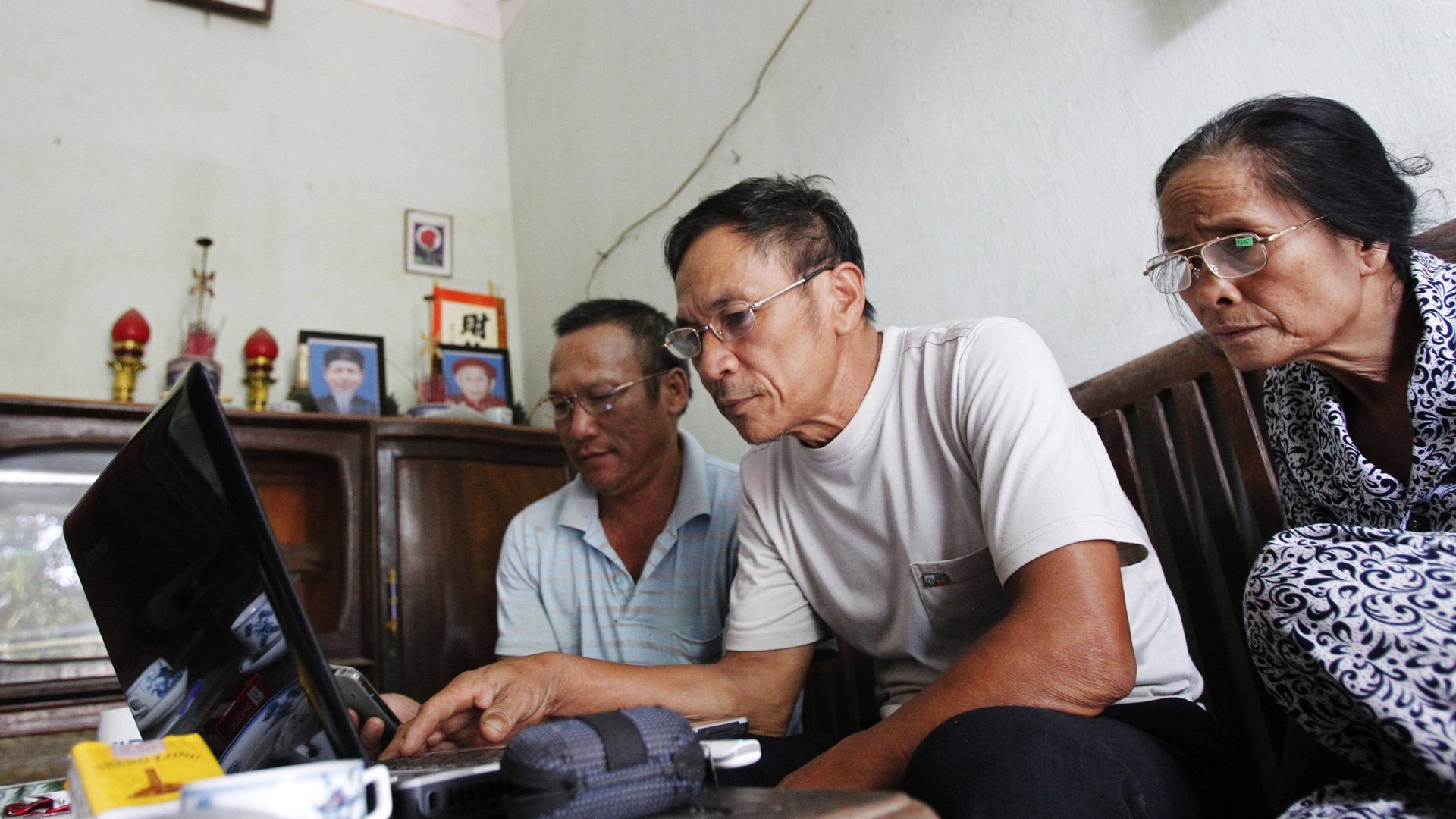Vietnam’s new social media crackdown takes aim at news aggregators (and enemies of the state)
Vietnam’s new law regulating social media networks and online content is so broadly written that no one can quite agree what it means—but there’s something for nearly everyone to hate.


Vietnam’s new law regulating social media networks and online content is so broadly written that no one can quite agree what it means—but there’s something for nearly everyone to hate.
Decree 72, signed by Prime Minister Nguyen Tan Dung in July and made public last week, says personal webpages and social network profiles “should be used to provide and exchange information of that individual only; it does not represent other individual or organization, and is not allowed to provide compiled information.” What’s “compiled information,” then? Hoang Vinh Bao, director of the Broadcasting and Electronic Information Department at the Ministry of Information and Communications, told local media that sites “are not allowed to ‘quote,’ ‘gather’ or summarize information from press organizations or government websites.”
If you think that sounds ominously vague, you’re not alone. Critics of the new law noted that it would essentially ban any links to a news article on Facebook, which has 12 million users in Vietnam. “We are deeply concerned by the decree’s provisions that appear to limit the types of information individuals can share via personal social media accounts and on websites,” the US Embassy in Hanoi said. Reporters Without Borders called Decree 72 “both nonsensical and extremely dangerous,” saying it would require “massive and constant government surveillance of the entire internet.”
While Communist-controlled Vietnam has long had a reputation for internet censorship, the intent of Decree 72 may be much more quotidian, according to reports in the local press and TechInAsia: cracking down on rampant copyright violations by Vietnamese news aggregators, who are cutting and pasting others’ articles onto their sites, and carving into the online audience of the country’s established journalism outlets. In a follow-up interview, Hoang Vinh Bao told VnExpress online newspaper that “Vietnamese citizens are allowed to share links to news articles on their blogs, but not copy and paste whole reports on their pages.”
That’s still pretty vague, and leaves open huge questions about how Vietnam could ever implement or enforce Decree 72, whose penalties have not yet been disclosed. Such uncertainties could have a chilling effect on the thriving Vietnamese tech scene and hinder the country’s efforts to equip itself for a knowledge-based economy, including teaching computer programming to second-graders.
And there is also the chilling language of the second half of Decree 72, which bans “information that is against Vietnam, undermining national security, social order, and national unity … or information distorting, slandering, and defaming the prestige of organizations, honor and dignity of individuals.”
Vietnam has already gained notoriety for jailing 35 bloggers for writing about taboo subjects like Chinese mining companies accused of receiving cushy deals from government ministers. The country is already near the bottom of Reporters Without Borders’ press freedom index, trailed only by countries like China and North Korea. Regardless of the original intent of Decree 72, it seems likely that it will become another yet weapon for Vietnam’s government to wield against its critics—whether or not they’re on Facebook.